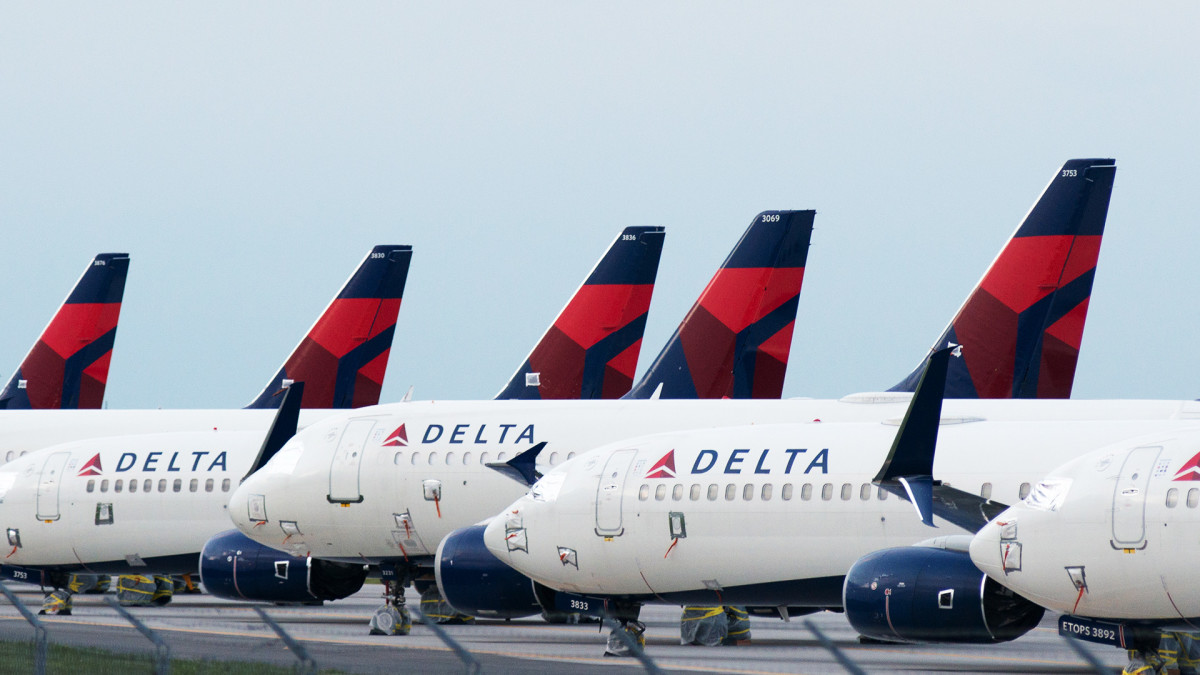
Just like most airlines, Delta (DAL) has spent the last few years trying to pay down debts accrued during the pandemic while also navigating a surge in travel demand without always having the adequate staff and resources to meet it.
Earlier this month, the airline released near-record revenue but still fell below analyst expectations with projected adjusted profit of between $1.70 and $2.00 per share and growth of no more than 4% rather than the initially expected 5.8% in the third quarter.
Related: Major airlines may be unable to meet record-high travel demand this year
After cutting Delta's rating to junk amid the pandemic slump, Fitch Ratings raised it back to investment-grade BBB- on July 16. While this is the lowest possible investment-grade rating, this indicates that the "Big Three" rating agency considers Delta a stable investment with low risk of default.
'A solid business profile reflected in its leading position in key markets'
Fellow "big three" agency Moody's also raised Delta's rating back to its lowest level of investment grade in February 2024 while S&P still has it in junk category. According to a note that Fitch sent to investors, Delta's balance sheet has "improved considerably after the pandemic." The airline paid down $11 billion in debt over the past three years and expects to bring down unencumbered assets to $30 billion by the end of 2024.
More Travel:
- A new travel term is taking over the internet (and reaching airlines and hotels)
- The 10 best airline stocks to buy now
- Airlines see a new kind of traveler at the front of the plane
"Delta also benefits from a solid business profile reflected in its leading position in key markets and strong brand reputation," the report reads further.
Delta has named restoring this credit rating a key goal when presenting its post-pandemic financial plans to investors back in 2021 and celebrated the major milestone even as several challenges were reflected in its last earnings report released on July 11.
Related: Get the best cruise tips, deals, and news on the ships from our expert cruiser
Delta is promising to 'strengthen its balance sheet.' Can it really?
"Achieving our goal of returning to investment grade is a major accomplishment, and reflects the outstanding work of our entire team," Delta Chief Financial Officer Dan Janki said in a statement. "We'll continue to focus on strengthening our balance sheet and our financial foundation as we move forward into the second half of the year and beyond."
Fitch further said that, when it comes to airlines, Delta is likely to remain the most profitable investment for years to come as it is best-weathered to withstand many of the challenges facing the wider aviation industry.
Delta CEO Ed Bastian has previously blamed summer industry overcapacity which pushed the airline to discount ticket prices amid rising fuel and operational costs for the not-so-rosy parts of its fall projections while also saying that he expects the situation to stabilize by the autumn months. The need to discount hit the airline less than low-cost competitors which have significantly less room to bring down rock-bottom base fares they need to offer to stay competitive even further.
Delta shares were quick to respond to the revised rating and were up at $46 by the opening bell on July 17. The lowest range of investment-grade rating also, according to Fitch, reflects the fact that Delta still has $27 billion in gross debt and lease liabilities that it needs to make a greater dent in to be seen as an even more stable investment.
Related: Veteran fund manager picks favorite stocks for 2024







